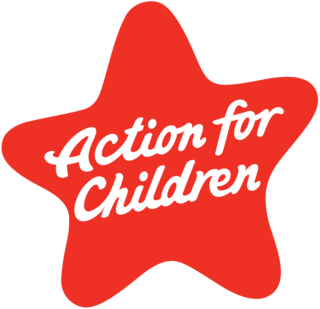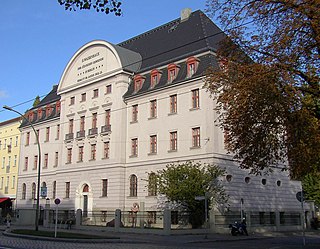
An orphanage is a residential institution, total institution or group home, devoted to the care of orphans and children who, for various reasons, cannot be cared for by their biological families. The parents may be deceased, absent, or abusive. There may be substance abuse or mental illness in the biological home, or the parent may simply be unwilling to care for the child. The legal responsibility for the support of abandoned children differs from country to country, and within countries. Government-run orphanages have been phased out in most developed countries during the latter half of the 20th century but continue to operate in many other regions internationally. It is now generally accepted that orphanages are detrimental to the emotional wellbeing of children, and government support goes instead towards supporting the family unit.

Barnardo's is a charity headquartered in Barkingside in the London Borough of Redbridge. It was founded by Thomas John Barnardo in 1866, to care for vulnerable children. As of 2013, it raised and spent around £200 million each year running around 900 local services, aimed at helping these same groups. It is the largest children's charity in the UK in terms of charitable expenditure.

Action for Children is a UK children's charity created to help vulnerable children and young people and their families in the UK. The charity has 7,000 staff and volunteers who operate over 475 services in the UK. They served a total of 671,275 children in 2021 and 2022. Action for Children's national headquarters is in Watford, and it is a registered charity under English and Scottish law. In 2017/2018, it had a gross income of £151 million.

Chernobyl Children International (CCI) is a non-profit, international development, medical, and humanitarian organisation that works with children, families and communities that continue to be affected by the economic outcome of the 1986 Chernobyl accident. The organisation's founder and chief executive is Adi Roche. Before 2010, it was known as Chernobyl Children's Project International (CCPI).
Spurgeons is a large national children's charity in the United Kingdom, working with vulnerable families, children and young people. It is based in Rushden, with several offices in the UK, and is a registered charity.
Children on the Edge is a non-profit charitable organisation dedicated to working on behalf of some of the most marginalised children around the world. The organisation is based in Chichester and was founded by the owner of The Body Shop, Dame Anita Roddick, (DBE) in 1990 following her visit to several Romanian orphanages. It was co-founded by Rachel Bentley, who has led the organisation to this day.

The Ospedale degli Innocenti, also known in old Tuscan dialect as the Spedale degli Innocenti, is a historic building in Florence, Italy. It was designed by Filippo Brunelleschi, who received the commission in 1419 from the Arte della Seta. It was originally a children's orphanage. It is regarded as a notable example of early Italian Renaissance architecture. The hospital, which features a nine bay loggia facing the Piazza SS. Annunziata, was built and managed by the "Arte della Seta" or Silk Guild of Florence. That guild was one of the wealthiest in the city and, like most guilds, took upon itself philanthropic duties.

Norwood, known legally as Norwood-Ravenswood, is a United Kingdom charity established in 1785 in the East End of London. Its name comes from its long-running home for Jewish children, Norwood Hall, in the south London suburb of West Norwood which opened in 1863 and closed in 1961.

Saint Vincent's Catholic Medical Centers was a healthcare system in New York City, anchored by its flagship hospital, St. Vincent's Hospital Manhattan.
Mogilino is a village in Ruse Province, northern Bulgaria. It became well known internationally after several reports about the institution for children with physical and mental disabilities. In 2007, the BBC showed the film "Bulgaria's Abandoned Children". The British public were deeply disturbed and started a petition to the Prime Minister to intervene and put pressure on EU institutions and the Bulgarian government to solve the problem. Many British, Bulgarian and international charities intensified their work effort to solve the problem with abandoned children in the country. The case of Mogilino resembles the campaign publicising the conditions in the Romanian orphanages in the early 1990s. Bulgaria has been criticised for having one of the highest numbers of children in state institutional care in the EU.
UNICEF, originally the United Nations International Children's Emergency Fund, officially United Nations Children's Fund since 1953, is an agency of the United Nations responsible for providing humanitarian and developmental aid to children worldwide. The organization is one of the most widely known and visible social welfare entities globally, operating in 192 countries and territories. UNICEF's activities include providing immunizations and disease prevention, administering treatment for children and mothers with HIV, enhancing childhood and maternal nutrition, improving sanitation, promoting education, and providing emergency relief in response to disasters.
Children's Hunger Fund (CHF) is a Christian non-profit organization that resources and empowers local churches in the United States and around the world to meet the needs of their impoverished community members. CHF's mission is to "deliver hope to suffering children by equipping local churches for gospel-centered mercy ministry".
Orphanhood in Romania became prevalent as a consequence of the Socialist Republic of Romania's natalist policy under Nicolae Ceaușescu. Its effectiveness led to an increase in birth rates at the expense of adequate family planning and reproductive rights. Its consequences were most felt with the collapse of the regime's social safety net during the 1980's Romanian austerity period, which led to widespread institutional neglect of the needs of orphans, with severe consequences in their health, including high rates of HIV infection in children, and well-being. A series of international and governmental interventions have taken place since the 1990s to improve the conditions in orphanages and reform the country's child protection system.

Deinstitutionalisation is the process of reforming child care systems and closing down orphanages and children's institutions, finding new placements for children currently resident and setting up replacement services to support vulnerable families in non-institutional ways. It became common place in many developed countries in the post war period. It has been taking place in Eastern Europe since the fall of communism and is now encouraged by the EU for new entrants. It is also starting to take hold in Africa and Asia although often at individual institutions rather than statewide. New systems generally cost less than those they replace as many more children are kept within their own family. Although these goals have been made internationally, they are actively being working towards as reform and new reforms are put into practice slowly as is fit for each country.
Street children or orphans in some Eastern European countries face problems such as malnutrition, HIV, lack of resources, victimization though child sex tourism, social stigmatization and discrimination.

Tourism in Cambodia is one of the most important sectors in the country's economy. In 2013, tourism arrivals increased by 17.5 percent year on year, with business travelers increasing 47 percent.

Institutionalization of children with disabilities in Russia is the placement of children, who have been abandoned or whose parents cannot support them, into a facility which can be similar to an orphanage. This often occurs in countries where alternative methods of care are not available. The definition of an institution can be ambiguous; the "Report of the Ad Hoc Expert Group on the Transition from Institutional to Community-based Care" defines an institution based on the following guidelines:
Georgette Mulheir was the chief executive of Lumos, an international non-governmental organisation, founded in 2005 by J. K. Rowling to end the institutionalisation of orphaned children throughout the world, from 2011–2019. Her model of deinstitutionalisation, pioneered since 1993, has been followed in many countries across Eastern and central Europe.
Hospices of Hope is a non-profit organisation which aims to provide palliative care services to adults and children with terminal and life-limiting illnesses in Southeastern Europe. The main areas of delivery are Romania, Serbia, and Moldova. Hospices of Hope also provides training and education programmes in countries outside of the core provision.

The Church of Jesus Christ of Latter-day Saints in Romania refers to the Church of Jesus Christ of Latter-day Saints and its members in Romania. A small branch was formed in Bucharest in 1991. In 2022, there were 3,082 members in 15 congregations.











